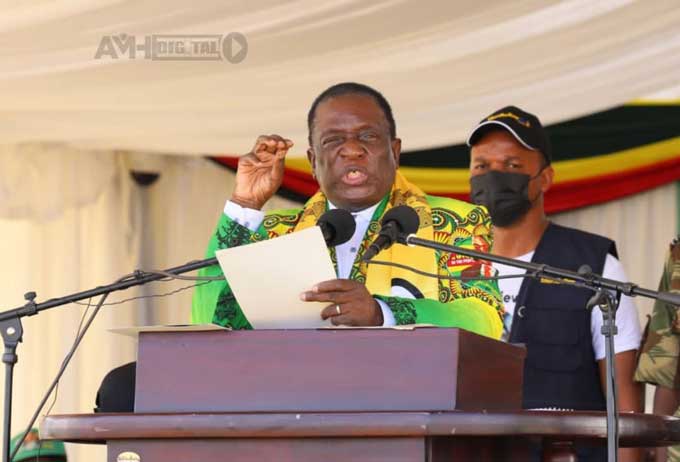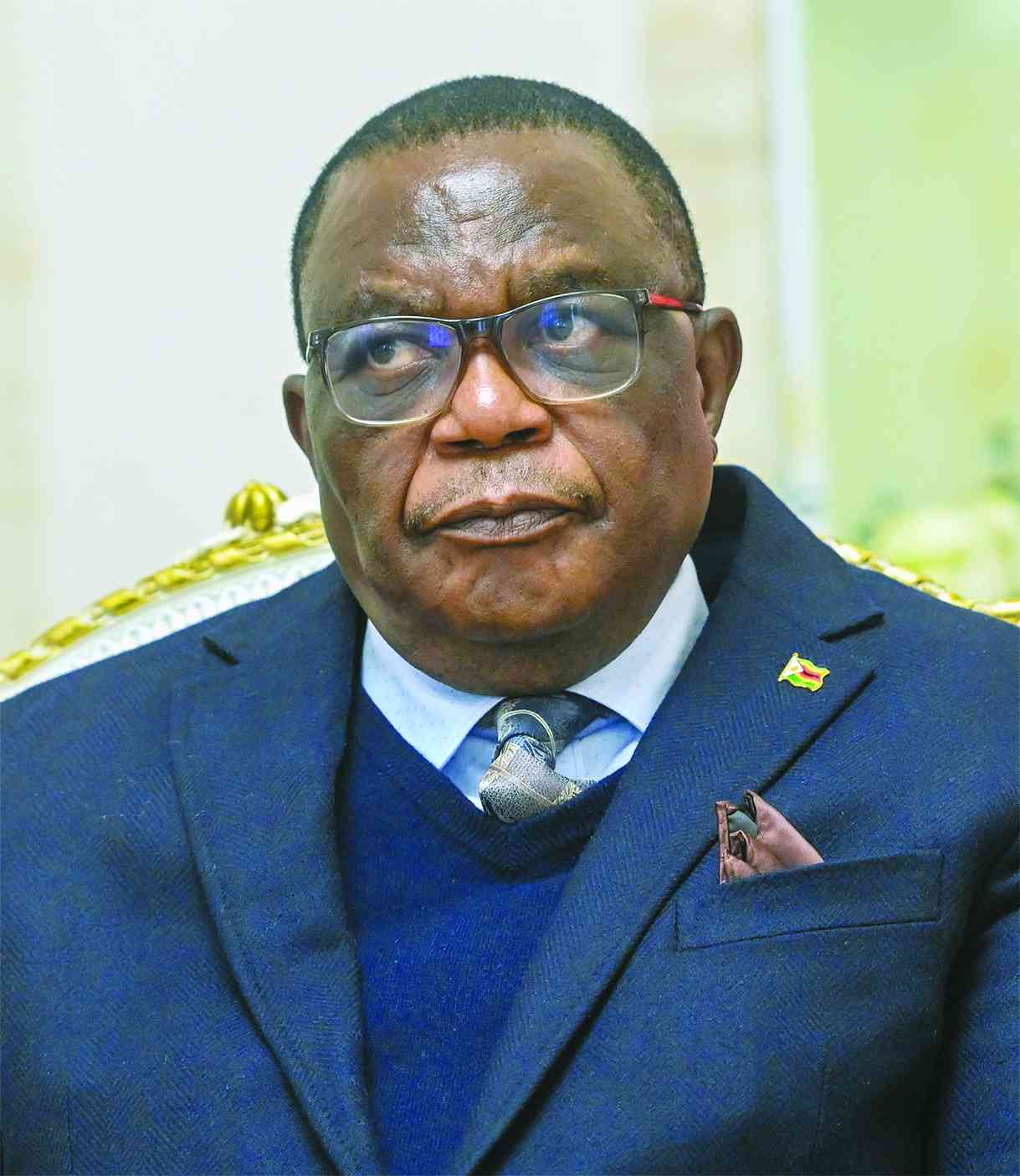
BY DESMOND CHINGARANDE/TAURAI MANGUDHLA Four years after President Emmerson Mnangagwa survived an assassination attempt it has emerged that a former soldier, who was convicted by the military for the grenade attack, was in India on the day it happened.
Mnangagwa was leaving the VIP tent at White City Stadium on June 23, 2018 after a Zanu PF campaign rally when a grenade was thrown in his direction.
Scores of people including former Vice-President Kembo Mohadi and Defence minister and Zanu PF chairperson, Oppah Muchinguri, security aides, politicians and supporters suffered varying degrees of injuries from the blast.
It has since emerged that Tendai Kandima, an ex-corporal and Special Forces (SAS) training dropout, was convicted by a military court martial in February 2019, but the case was kept under wraps until now after this publication obtained his court documents.
Kandima says he was detained at an unknown remote area following his arrest after he “confessed” that he was behind the attack.
He says he did that after he came across a message offering monetary rewards for people with information about the assassination plot.
Kandima, who is said to be not an expert in handling bombs, was in India for medical attention for a chronic heart ailment on the day the incident happened.
He is now appealing against both the conviction and the sentence in a case that could shed light on the investigations into the case that the government has not commented about.
- Chamisa under fire over US$120K donation
- Mavhunga puts DeMbare into Chibuku quarterfinals
- Pension funds bet on Cabora Bassa oilfields
- Councils defy govt fire tender directive
Keep Reading
“The accused member has got a serious medical condition and I believe at one time he was in India for medical attention,” Kandima’s legal team from Lawman Law Chambers submitted in the Supreme Court appeal.
“He has got a heart problem whereby he cannot stand for a long time, which is a very serious condition.
“He was in India from June 13 up to June 26 that is when he was going through all those examinations.
“The accused has no capacity whatsoever to conduct the said allegations in that charge considering the fact that the military training that he has received since the date of attestation up to present day, he just did basic military training, medical training class 3 and 4.
“So with these courses, I do not think that he was in any position or any capacity or condition to conduct such allegations.”
In his appeal, Kandima does not deny making the statements, but said he was joking after a £1 000 reward was offered for any details that may lead to the arrest of the culprits.
The offer was made by one Kerina Mujati through a WhatsApp group.
The court documents, however, do not state Mujati’s profession or whether she was a soldier or police officer.
Bomb experts from Belarus joined the Criminal Investigations Department and Military Intelligence in the investigations, but there was no headway.
At one time, police arrested some vagabonds and later released them, but after beatings.
Kandima’s lawyers said he thought he was going to get the money that would change his fortunes.
“The accused…has made his falsehoods as highlighted on the charge after the said lady as mentioned had promised to give him £1000.
“So the accused member thought this would be the chance to have that money not knowing that he is committing a crime,” the court papers read.
“So all these falsehoods were peddled just because he was promised.
“The accused had no capacity whatsoever to conduct the said allegations in that charge.”
Kandima also said he was not afforded a fair trial as he revealed how he was denied access to legal representation and communication to the outside world before trial.
“The appellant was not afforded a right to a fair trial as envisaged above.
“He was only furnished with the trial papers in advance of the trial proceedings, but the appellant was detained at some remote area until the trial and with no one to communicate with,” the court papers read.
“The conviction is, therefore, bad at law as it is clearly a violation of the applicants right to a fair trial.”
He also said the conduct of defence counsel he was provided with was suspicious as the latter did not take his instructions, but acted in a manner that resulted in his conviction.
“The facts of his case show gross irregularity in that the applicant was appointed a defence officer, who acted prejudicially to the client by conducting the trial without taking adequate instruction from the appellant.
“For such a serious case, the defense officer was ill equipped to adequately represent the appellant.
“It follows that the appellant was as good as unrepresented accused as his legal practitioner acted prejudicial to his interest or an instruction that was not the appellant’s.”
It also emerged that Chief Justice Luke Malaba in January appointed appeal judges to hear his case, but the matter has mysteriously not been brought to court.
“Sometime in January, the registrar communicated with the applicant’s legal practitioners of record that the chief justice had appointed judges to the court martials appeal court.
“Despite the delay, since the noting of the appeal, and the subsequent appointment of the court martial’s appeal, the applicant is still suffering injustice by serving a sentence.”
Reports said the grenade ricocheted off a tent rope and Mnangagwa in a BBC interview days after the attack blamed the G40 Faction in Zanu PF.
“I think this is a political action by some persons aggrieved by the current democratic dispensation of the country,” Mnangagwa was quoted saying at the time
“My hunch without evidence is that the people who are aggrieved about the new dispensation are the G40.”
Bomb experts from Belarus concluded that the explosive device was an offensive fragmentation grenade made in Russia and lobbed in the direction of Mnangagwa from a distance of 17-20metres.







